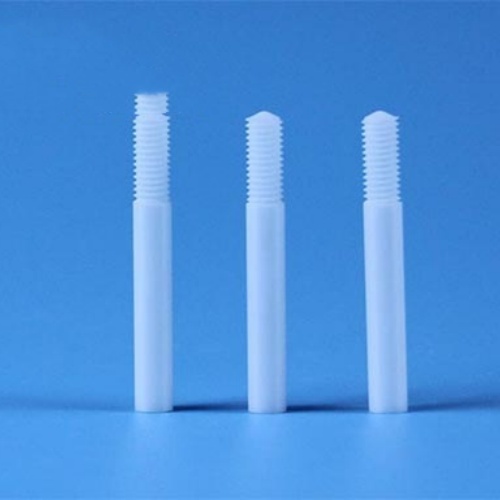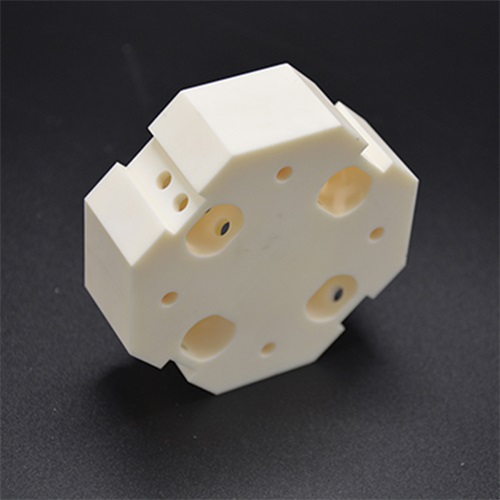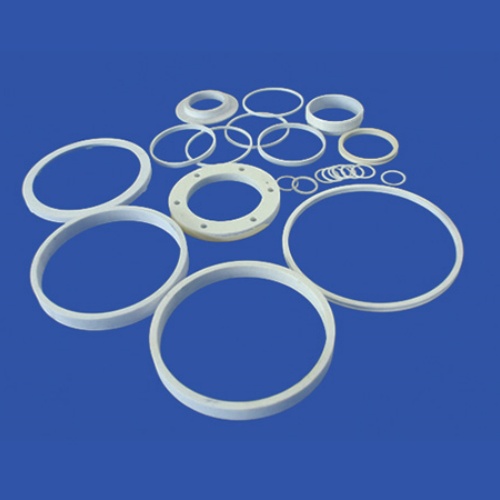Alumina ceramic disc is a high-performance ceramic material that has been widely used in various fields due to its excellent physical and chemical properties.
Aluminum oxide ceramic disc is a ceramic material mainly composed of high-purity aluminum oxide (Al ₂ O3), which is made through precision molding and sintering processes.
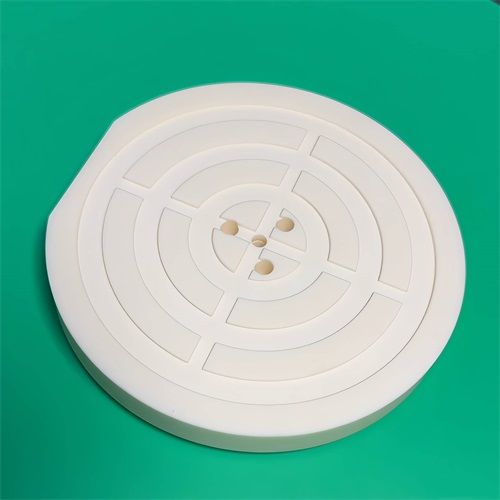
Main features:
High hardness: The Mohs hardness can reach level 9, second only to diamond, and has extremely strong wear resistance.
High temperature resistance: capable of withstanding temperatures up to 1600 ℃ or higher, suitable for extreme thermal environments.
High insulation: With a resistivity of up to 10 ¹⁴Ω· cm, it is suitable for high-voltage electrical insulation.
Corrosion resistance: It exhibits strong chemical stability in acidic and alkaline environments and is suitable for chemical equipment.
High strength and stability: Excellent mechanical properties, not easily broken, suitable for high-speed friction and impact environments.
These characteristics make alumina ceramic discs a powerful material, known as the “all-around player” in industry.
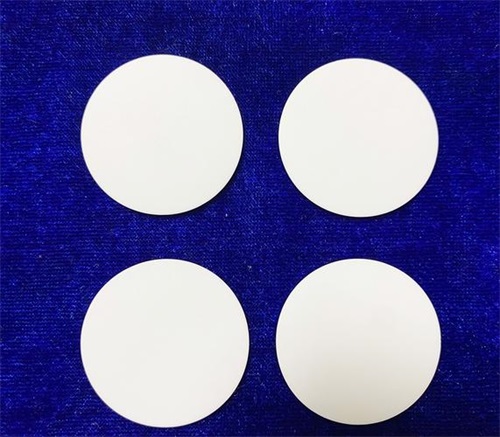
Application area
Aluminum oxide ceramic discs are widely used in the following fields due to their excellent performance:
(1) Electronic industry
Wafer Carrier: In semiconductor manufacturing, alumina ceramic discs are used to secure and support wafers, ensuring their stability in high temperature and corrosive environments.
Electronic substrate: used as an insulating material for packaging and heat dissipation of electronic devices.
(2) Mechanical manufacturing
Wear resistant components: used for high-speed bearings, seals, etc., significantly improving service life.
Ceramic cutting tools: with high hardness and wear resistance, suitable for precision machining.
(3) Aerospace
Turbine blades: High temperature components used in aircraft engines, with excellent thermal barrier coating performance.
Thermal barrier coating: protects aircraft structures at extreme temperatures.
(4) Medical field
Artificial joints and dental implants: have good biocompatibility and corrosion resistance, and are used as medical implant materials.
(5) Chemical industry
Chemical reactor: exhibiting excellent corrosion resistance in acidic and alkaline environments, suitable for chemical equipment.
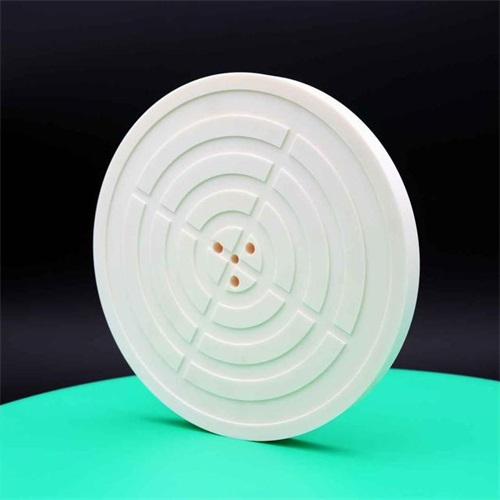
Customized description
The customized production of alumina ceramic discs can be adjusted according to user needs to meet the special requirements of different industries. The following are the main directions of its customization:
(1) Pore size and porosity
Pore size adjustment: According to application requirements, the pore size and distribution can be adjusted to optimize filtration efficiency or adsorption performance.
Porosity range: usually between 30% -70%, can be customized according to the application.
(2) Size and shape
Specification and size: Support customization based on drawings, can be processed into different shapes (such as disks, tubes, etc.) and sizes to meet the installation requirements of specific equipment.
(3) Performance optimization
High temperature resistance and corrosion resistance: By adjusting the material composition and preparation process, its performance in specific environments can be enhanced.
Mechanical strength: Optimize microstructure to improve mechanical stability and wear resistance.
(4) Preparation process
Molding process: Common methods include dry pressing molding and isostatic pressing molding, and suitable processes can be selected according to needs.
Sintering treatment: By high-temperature sintering, the density and properties of the material are improved.
Surface treatment: Grinding, polishing and other processes are used to ensure a smooth and flat surface, meeting high-precision requirements.
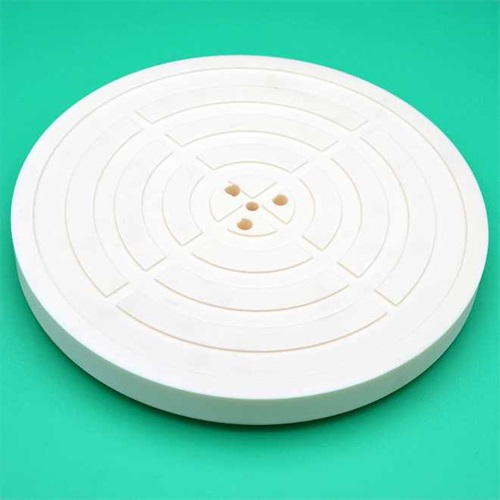
Alumina ceramic disc is a high-performance multifunctional material with characteristics such as high hardness, high temperature resistance, corrosion resistance, and strong insulation. It is widely used in fields such as electronics, machinery, aerospace, medical and chemical industries. Its customized production can be adjusted according to the requirements of aperture, size, performance, etc., to adapt to the special application scenarios of different industries. This material plays an important role in modern industry due to its excellent performance and wide application prospects.
PREVIOUS:Alumina ceramic porous ring
CATEGORIES
LATEST NEWS
- The manufacturing method of...
- Application scope of zircon...
- What are the difficulties i...
- What are the advantages of ...
- Application of Zirconia Cer...
- What are the applications o...
- What are the process method...
- What are the applications o...
- Where is the wide applicati...
- What are the properties of ...

